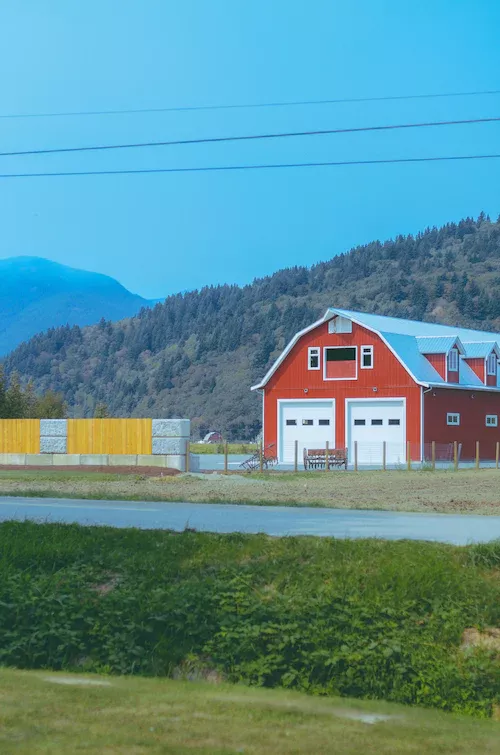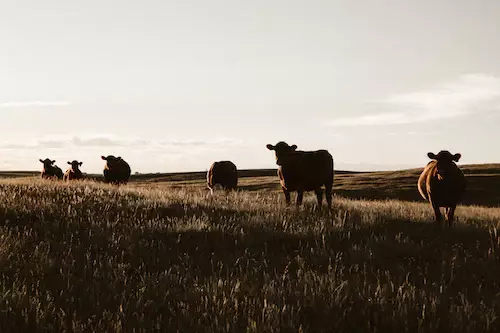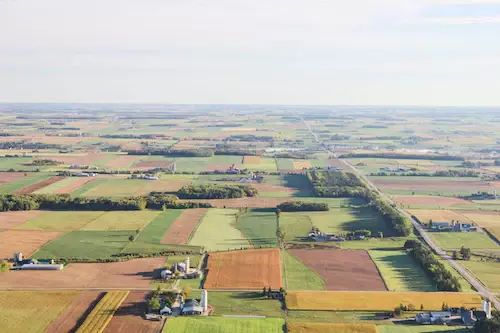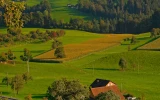What Is a Hobby Farm in Canada (And What Isn't)?
Hobby farms have become increasingly popular in Canada, especially among those looking to escape the hustle and bustle of city life. But what exactly is a hobby farm, and what isn’t it? Whether you’re dreaming of a rural lifestyle, or are simply curious about the concept of hobby farming, this article will provide you with a comprehensive overview of what it entails.
A hobby farm in Canada is a small-scale farm that is operated for pleasure and recreation and is used for small-scale agricultural production. Hobby farms are not designed for commercial production, and may not be subject to certain regulations or licensing requirements as a result.
We’ll look at the definition, the types of activities typically associated with hobby farming and the various regulations that apply. By the end of this article, you’ll be well-equipped with the knowledge to decide if hobby farming is the right lifestyle choice for you.
Summary
- A hobby farm in Canada is a small-scale agricultural operation that is run by the owner for leisure or recreation, rather than for commercial gain.
- A hobby farm typically involves a few animals and/or a small amount of acreage, and is located on a rural property.
- The distinction between a hobby farm and a commercial farm depends on the size of the operation, the type of animals or crops being grown, and the owner's intention for the farm.

On this page:
A Hobby Farm in Canada Operates for Recreation and Agricultural Production
A hobby farm in Canada typically consists of a small acreage of land, usually between 5-10 acres, and is used to grow crops, raise animals, and/or provide a rural lifestyle.
Common crops grown on hobby farms in Canada include vegetables, fruits, and grains. Animals commonly raised on hobby farms in Canada include poultry (chickens, turkeys, and ducks), goats, sheep, cows, and pigs.
Other common activities on a hobby farm in Canada include beekeeping, keeping horses, and maintaining an orchard. Hobby farms in Canada are often used as a form of self-sufficiency, or to supplement a family’s income.
What Is Not Considered a Hobby Farm in Canada
Farmers in Canada have the potential to earn a living from their profession, but the designation of a farm as a hobby farm can have implications for regulations, taxes, and other responsibilities.
1. It is not considered a hobby farm when the farm is generating an annual net income of at least CAD 10,000
This threshold is set by the Canadian Revenue Agency and is the minimum income requirement for a farm to be considered a business. Hobby farms in Canada should not have a large production or focus on cash crops. These farms should not focus on selling their produce or livestock directly to the public or wholesale markets.
Hobby farms should not have any major capital investments or debt and should not have any commercial contracts or agreements with buyers or suppliers.
2. It is not considered a hobby farm when the farm has more than 10 acres of land
In Canada, hobby farms are considered 'small holdings' and are usually limited to 10 acres or less. The acreage limit helps to ensure that the land is used for recreational and agricultural purposes, rather than for commercial or residential development.
The majority of hobby farms are located in rural areas and are used to grow and raise animals, produce, or both. Some of the most common activities on hobby farms include raising livestock, cultivating crops, maintaining a vegetable garden, and harvesting honey.
Hobby farmers may also collect firewood, fish, hunt or engage in other activities related to rural life. They may also use the land to provide a habitat for wildlife.

3. It is not considered a hobby farm when the farm is selling produce or livestock
Hobby farms are not allowed to sell any produce or livestock to generate income. A hobby farm intends to provide recreational and educational activities for the owner and their family, rather than to generate income.
Hobby farms are typically small farms, with less than 10 acres of land. They may have a variety of animals, such as horses, cows, chickens, and goats, but the animals must be kept for pleasure and not for profit. Hobby farms may also grow a variety of fruits, vegetables, and plants, but the produce and flowers cannot be sold for profit.
4. It is not considered a hobby farm when the farm is employing more than two people
Farms that employ more than two people are generally considered to be commercial operations and are not considered hobby farms. Hobby farms are not allowed to employ more than two people, including family members, at any given time.
Hobby farms must comply with local and state labor laws, such as minimum wage and overtime requirements when employing people. The farms must provide written contracts to employees, outlining their job duties, pay, and benefits. The farms are required to pay their employees at least the minimum wage set by the state.
Laws and Regulations of Hobby Farming in Canada
It is important to understand the legal requirements of running a hobby farm in Canada so that you can make sure you are following all the necessary steps. This guide will provide you with the information you need to understand the regulations and laws for having a hobby farm in Canada.
1. Comply with the Canadian Food Inspection Agency (CFIA) regulations and standards
Adhering to CFIA regulations and standards ensures the safety of your farm animals and the food they produce. Following the CFIA standards ensure that your hobby farm is up to the expected standards and is compliant with the regulations set forth by the government.
Following CFIA regulations will ensure that your hobby farm complies with the Canadian Food and Drug Act and that the food produced is safe for human consumption. Following these regulations will help prevent the spread of diseases, parasites, and other contaminants that can be dangerous to your animals and the food they produce.
2. Abide by the zoning and land use regulations of the local municipality
Zoning and land use regulations provide specific guidelines for the size of the hobby farm, where it can be located, and what types of activities and structures can be built on the property. These regulations also ensure that hobby farms are located away from residential and commercial areas so that noise and other disturbances are kept to a minimum.
Abiding by zoning and land use regulations helps to maintain the integrity of the local environment, as well as the health and safety of the local community. Following the regulations can also help to reduce conflicts between hobby farmers and their neighbors, as well as between hobby farmers and local businesses.

3. Follow the animal welfare standards set out by the Canadian Council on Animal Care
The Canadian Council on Animal Care sets out standards for housing, nutrition, and environmental enrichment to ensure that animals are kept in a safe, healthy, and comfortable environment. The standards require that animals be provided with adequate food and clean water, as well as appropriate amounts of space, bedding, and other materials necessary for their well-being.
The standards also require that animals receive appropriate veterinary care, including regular examinations and immunizations. The Council also emphasizes the importance of animal welfare and how it has an impact on their overall health and productivity. The standards set out by the Council help to ensure that hobby farms are operating humanely and ethically and that the animals are being provided with the care and respect they deserve.
4. Comply with the applicable laws and regulations about hazardous materials
Laws and regulations about hazardous materials help protect the environment from pollution and contamination, which can be caused by improper use or disposal of fertilizers, pesticides, and other chemicals.
